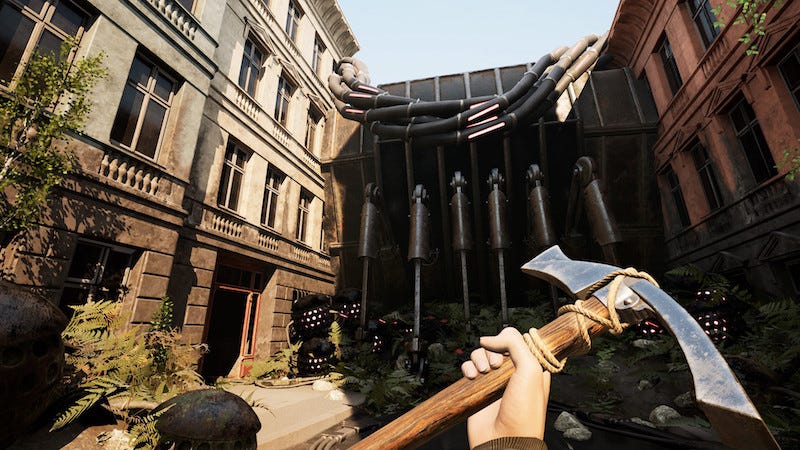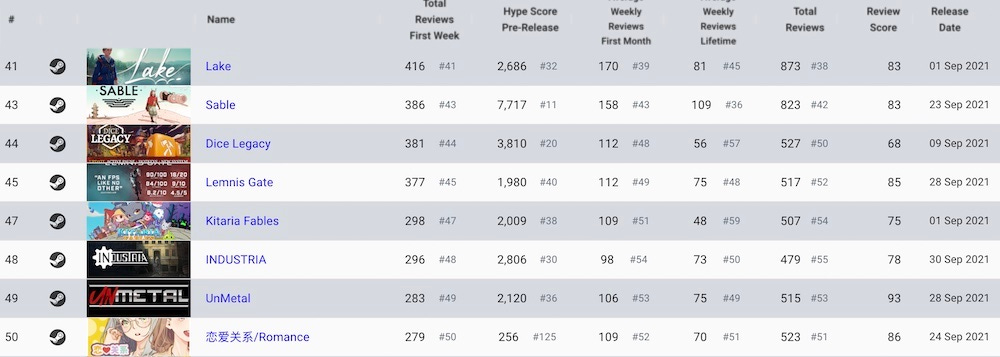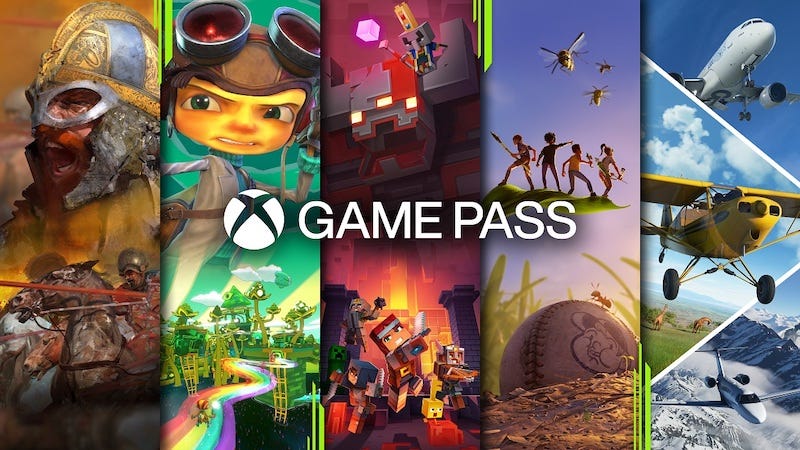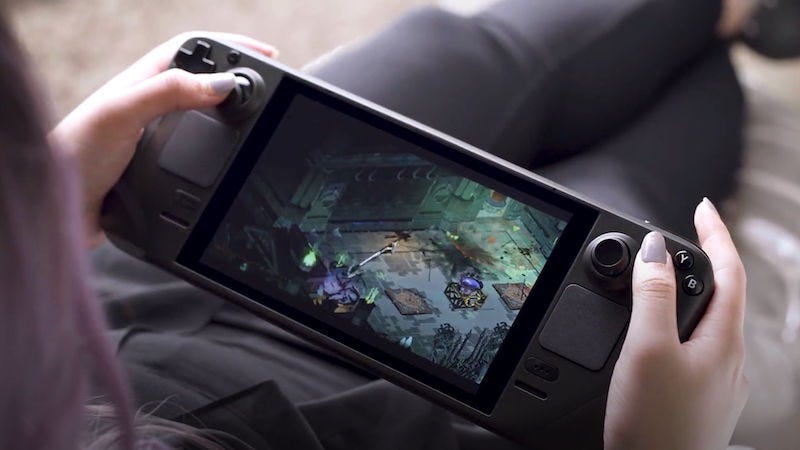What does 'success' really mean for PC/console games in 2021?
A couple of transparent examples
[The GameDiscoverCo game discovery newsletter is written by ‘how people find your game’ expert & GameDiscoverCo founder Simon Carless, and is a regular look at how people discover and buy video games in the 2020s.]
As the year slowly draws to an end, things aren’t slowing down for us at GameDiscoverCo Towers. The incredibly dynamic video game discovery marketplace continues to do lots of interesting things, and we’re here to document them for you!
We have an informative interview about a very helpful business tool scheduled for Wednesday’s newsletter. But we’re going to start out the week in slightly more philosophical form. Let’s do it…
[Thanks to new members of our GameDiscoverCo Plus paid subscription - only $12 a month if you sign up for a year, and includes an exclusive weekly Plus newsletter, an info-filled Discord, a data-exportable Steam Hype back-end, two high-quality eBooks, & lots more - join them!]
Incomes, sustainability, & ‘success’ in the PC/console space
At the end of last week, the below Tweet from stylish single-player FPS Industria co-creator David Jungnickel caught our eye - and a lot of other people’s. So let’s print it, and then unpack it and the responses to it:
There’s a few things going on here. Firstly, it’s worth noting David’s follow-up: “We could not be more happy and proud [of] INDUSTRIA. We had amazing support by our community, friends and family, and we are thankful for being able to have followed our dream for 5 years straight.”
He adds, clarifying that this was mainly a spare-time project: “What I've meant with being able to pay for the next project: NOT working essentially for free and without income for years as we did it for INDUSTRIA. Pay people in advance. Work full-time. Don't burn out. Being financially independent.”
At GameDiscoverCo, we’re close to launching Steam post-release analysis charts for Plus members, comparing pre-release Hype to post-release performance for all recent Steam games, sorted by month.
Here’s an extract from September 2021’s chart, where Industria was ranked 48th best launch of the month, sorted by # of Steam reviews in first week. This ranking is from a total of 921 Steam games. So Industria is roughly in the top 5% of the games debuting in September:
And the game converted OK compared to the other games in similar chart placings, if you compare Hype to first week review #s. So it’s not a massive outlier. It currently has 483 Mostly Positive reviews, which is really quite decent for today’s market.
(We won’t speculate on exact sales numbers, since shorter narrative games sometimes have lower reviews→sales ratios. But its gross is probably in the $100-$200k USD range so far - with its net being 58.5% of that, and publisher and other funder costs to potentially recoup.)
Anyhow, the game wasn’t a failure. But it also hasn’t provided the kind of income that would allow the dev to quit their dayjob and make their next game from scratch. And some replies tried to explain some ways the dev could make it work going forward:
No More Robots’ Mike Rose makes a fair point from a minimalist perspective: “So multiple of the devs we’ve worked with are now sustainable after their various launches. And the big ones I try to drill into people is: Spend less time + money. Games made by a bunch of people in 5 years are never automatically better than games made by 2 people in 2 years.”
Grey Alien Games’ Jake Birkett is also helpful: “Sorry to hear that? Have you seen my talk about sustainable indie dev? It's not "do what I did" but some principles. You have some good replies. It's a tough market for sure. Keep scope/spend/time small imho. Get funding, do contract work etc.”
I also dig SMG Studio’s comment: “There's more options in the long tail via various deals/platforms. Only advice would be to leverage the engine/art/work already done to create another game [in] a fraction of the time.” Also, that game will almost certainly be better design-wise, due to things you learned making the first one.
Also notable - Shawn Mills from Infamous Adventures is correct: “I guess when you work behind for the first game and want to pay in front for the next, you really are needing to get two games worth of revenue from the one game. That’s not easy.”
Finally, Stray Fawn Studios’ ever-useful Philomena Schwab also noted the government funding, platform sales & deals as key revenue sources. And others noted that the game may yet see decent long-tail sales - and that contracting can help bridge $ gaps.
And to be honest, this whole conversation reminded me why indie game publishers are back with a vengeance recently. Love them or hate them, they certainly have the ability to advance you hundreds of thousands of dollars (or millions, sometimes!) They then take the upfront risk that allows you to finish your game without scrambling.
But then, you only get royalties when your game recoups. And if an ever smaller number of your publisher’s games recoup, because they’re counting on that 1-in-X ‘megahit’ across their entire portfolio, are you accidentally a ‘work for hire’ studio, even when working on your own games?
At the very least, you’re locked into serial publisher contracts. And with the very high supply of great games out there right now, that can feel pretty risky. But what would help us all more is to get a better idea of how ‘the average game’ does nowadays. And that’s something we want to keep trying to work out and expose to you. Fun times!
Follow-up: subscription services - a slight return!
Thanks for your feedback on last week’s column about the rise of subscription game services. Interestingly, someone did point me to this 2019 talk snippet about Xbox Game Pass which tries to claim that Human Fall Flat, as a ‘physics puzzle game’, made 40% of Game Pass players then buy a puzzle game outside of Game Pass: “We actually created net new buyers”.
I’m sorry, this data may exist, but the causation seems very, very sketchy. And Human Fall Flat isn’t a puzzle game at its core, in our view - more of a multiplayer sandbox. These are some of the poor/facile arguments Microsoft was pushing aggressively, early on in Game Pass’ lifecycle. Happy to see more sophisticated arguments recently, as evidenced by a brand new Sarah Bond interview with GI.biz.
Strong words here on Game Pass: “Every time we look at it, we see that it is really beneficial for all games, inclusive of AAA. We see that engagement goes up, we see that spending goes up. I think I've said those stats a million times. And frankly, people wouldn't be bringing us better and better games and launching them in Game Pass, if it weren't economic for them. There is a logic to it.”
Look, creating a subscription platform is beneficial for the platform holder, who aggregates significant extra power. And it’s good for the games that get on it, as long as the terms are good - which they generally are, right now. But it is not beneficial for games and developers that can’t get on it. That’s an obvious new gatekeeper effect for all of these services.
And yes, Microsoft happens to be doing a very good job of picking interesting games. But it doesn’t mean we have to like the overall direction of travel - especially for premium games that don’t have paid upgrades or IAP built into them. The IAP/DLC Game Pass titles are where we believe you get most of the ‘engagement increase leads to spending increase’ that Sarah is referencing. It’s just not from Game Pass subscribers buying more $20 standalone puzzle games off-Game Pass, folks.
And the jury is still out on the long-term effect of Game Pass on those standalone $60 AAA games that people used to buy. (Though many Western publishers of those titles have already adjusted to IAP/DLC-led revenue monetization methods, to be fair.) Anyhow, enough already. I just get a little irked with ‘Game Pass is great for everyone, forever’ arguments. There are always winners and losers.
The game discovery news round-up..
Oh boy, there’s a lot of other stuff going on here. So let’s have a hack through all the other neat game discovery & platform news. It’s all out there in the wide, wide universe of video games:
You probably spotted this one, but yes, there’s been a Steam Deck delay and it won’t be out on 2021: “Based on our updated build estimates, Steam Deck will start shipping to customers February 2022.” And yes, this is global supply chain related: “Due to material shortages, components aren’t reaching our manufacturing facilities in time for us to meet our initial launch dates.”
There were some technical issues with the Steam Deck development stream on Friday, but luckily, a bunch of the videos are now available on the YouTube Steamworks page, including ‘development without a devkit’ (more info!). The Verge also rounded up the devstream for the wider public, including the fact that Valve’s changing how cloud saves work so you can pick up and play.
Also delayed into 2022 amidst supply chain woes? The whimsical Playdate handheld, with the creators noting: “Many of our parts have been delayed significantly. In fact, we can’t get any more of Playdate’s current CPU for - you’re not going to believe this - two years. Like, 730 days.” (They’re switching CPUs, and also had to change battery supplier for quality control reasons.)
Microlinks: Xbox’s 20th anniversary is now, and the anniversary broadast revealed 70 new OG Xbox backwards compatible games & a 10-hour Battlefield trial for Game Pass Ultimate folks; the creators of Switch bargain-tracking site DekuDeals talks his site & eShop improvements; PlayStation 5 shipping estimates are reportedly down by 1.5 million due to chip shortages.
Apple’s continued pivot on Apple Arcade content is interesting. To accompany its ‘best existing iOS premium apps ported to AA’ approach, its original commissioned titles are now things like Disney Melee Mania from Mighty Bear (Butter Royale), in which “Wreck-It Ralph, Elsa, and Mickey Mouse, Frozone, Moana, and Buzz Lightyear… battle in 3v3 matches.” It’s premium family-centric content, as is Lego Star Wars: Castaways, which launches later this week.
Maybe we mentioned this once before, but blockchain and crypto-powered (!) PC digital game store Ultra.io popped back onto my radar since it signed a distribution deal with The Walking Dead publisher Skybound. This was originally funded via an ICO (Initial Coin Offering), and you can trade games like NFTs. Well, we’ll see if it can conjure up a userbase, huh?
NPD’s U.S. hardware & select software numbers for October 2021 are upon us, thanks to a Mat Piscatella thread: “Spending across video game hardware, content and accessories grew 16% vs YA, reaching an October record $4.4 billion.” Looks like Far Cry 6 and Back 4 Blood were the big third-party console hits for the month - at least in ‘initial purchase’ terms.
Microlinks Pt.2: following up NPD, Metroid Dread is also a decent-sized hit for Nintendo, since it sold 854,000 copies in the U.S. during October; YouTube is removing the dislike count across the service, though you can still mash that dislike button for personal recommendation reasons; PlayStation 5 now “lets you add notifications for when a game gets discounted”, adding to the existing wishlist options.
Lars Doucet has an epic Axie Infinity Twitter thread, tied to a Naavik deconstruction of the ‘play to earn’ crypto-related game, revealing: “the daily earnings of the typical player of Axie Infinity (a "scholar" in the Philippines) have fallen below the Philippines' minimum wage line for all but the high ranking players, and even they have seen earnings decline since August.” Ouch?
More anniversaries: the PlayStation 5 just turned one year young, and Sony revealed that “PS5 gamers have collectively played more than 4.6 billion hours of gameplay on PS5”, also listing the top ten most-played PS5 games so far. (Think games like Fortnite, FIFA, MLB - but also PS5 exclusives like Marvel’s Spider-Man: Miles Morales & the Demon’s Souls remake.)
Microlinks, Pt.3: Microsoft’s Windows store finally (in the near future) allows you to install to any folder & access/mod games easier; the Twitch app is now available on Nintendo Switch; in ‘nice policies’ news, Genshin Impact now allows you to officially monetize fan art - albeit on a small/medium scale.
Finally: I co-own a small child who is very very into The Pigman Rap, so was looking around nerd/game rapper Dan Bull’s YouTube channel. And discovered that the upcoming indie title Golf Club: Wasteland commissioned Dan to do a custom - and rather witty - promotional music video. Well played, Sirs:
[We’re GameDiscoverCo, a new agency based around one simple issue: how do players find, buy and enjoy your premium PC or console game? We run the newsletter you’re reading, and provide consulting services for publishers, funds, and other smart game industry folks.]





